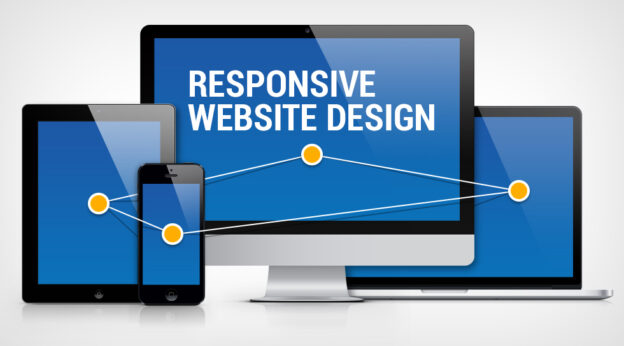In our fast-paced digital age, where consumers access websites on an array of devices ranging from smartphones and tablets to desktop computers and large-screen TVs, ensuring a seamless user experience has become paramount. Responsive web design has emerged as the solution to this challenge, enabling websites to adapt and provide an optimal viewing and interaction experience across all devices. In this article, we’ll explore the importance of responsive web design and how it ensures seamless user navigation across diverse platforms.
1. Consistency Across Devices
Responsive web design allows websites to maintain a consistent look and feel regardless of the device being used. This consistency is crucial for branding, as it helps reinforce the brand’s identity and message. When users encounter a familiar design and layout, they are more likely to trust and engage with the website.
2. Improved User Experience
User experience (UX) is at the heart of responsive web design. By optimizing a website for various screen sizes and resolutions, designers ensure that users can easily access and navigate content. No more zooming in and out or scrolling excessively just to read a paragraph or click a button. A seamless UX translates to higher user satisfaction, longer visit durations, and increased conversion rates.
3. Enhanced SEO Performance
Search engines favor responsive websites when ranking search results. Google, for instance, has adopted a mobile-first indexing approach, which means it primarily considers the mobile version of a website for ranking. Responsive design ensures that the same content is served to both desktop and mobile users, which can positively impact search engine rankings.
4. Cost-Effective Solution
Maintaining separate websites for desktop and mobile can be costly and time-consuming. Responsive web design streamlines this process, as developers only need to manage one codebase. This approach saves both time and money in the long run, as updates and changes are implemented uniformly across all devices.
5. Adaptability for Future Devices
The digital landscape is constantly evolving, with new devices and screen sizes regularly emerging. Responsive web design is future-proof as it can adapt to these changes without requiring a complete website overhaul.
6. Faster Loading Times
Responsive websites tend to load faster on mobile devices due to optimized code and content delivery. Faster loading times contribute to a better user experience, reduce bounce rates, and improve SEO rankings.
7. Broader Audience Reach
With the increasing popularity of mobile devices, a responsive website can extend your reach to a wider audience. Whether someone accesses your site on a smartphone during their daily commute or on a tablet while relaxing at home, responsive design ensures that your content is readily available and easy to consume.
8. Analytics and Data Consistency
Tracking user behavior and collecting data for analysis is essential for improving a website’s performance. Responsive design allows you to gather consistent data across all devices, providing a comprehensive view of user interactions and preferences.
In conclusion, responsive web design is not merely a trend but a necessity in today’s digital landscape. By embracing responsive design, businesses can not only meet the needs of their diverse audience but also stay ahead in the ever-evolving online ecosystem.It’s not just about making your website look good; it’s about making it work effectively for every user, regardless of the device they choose.
Contact Web Design Agency in Mauritius for your responsive design which will enable your websites to adapt and provide an optimal viewing and interactive experience across all devices.

